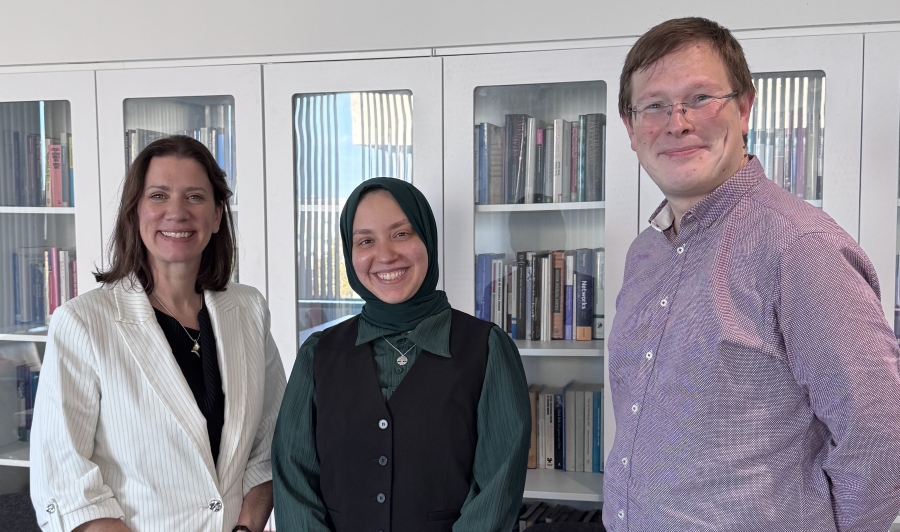Congratulations to Salsabil Abdalbaki on Passing Her Viva!
Tuesday, 11 November, 2025
Share

We are pleased to announce that our PhD student, Salsabil Abdalbaki, has successfully passed her viva voce examination.
Thesis title: Computational Approaches to the Detection of Media Frames, with an Application to the Nile Dispute
Supervisor: Prof. Johan A. Dornschneider-Elkink
Thesis work:
Framing an issue involves emphasizing particular aspects to justify a stance, gain support, and mobilize allies by shaping how people or target audiences perceive and respond to the issue. In times of tension and conflict, both disputants and audiences construct frames by developing interpretations of the conflict’s nature, its causes, and the motivations of the parties involved. This thesis primarily contributes to the field of Natural Language Processing (NLP) by using semi-supervised topic modeling and Large Language Models (LLMs) to advance existing knowledge on both manual and computational framing, from empirical and methodological perspectives. Specifically, it provides methodological guidance for the automatic detection of media frames, with direct application to the case study of the Nile dispute. Accordingly, this thesis investigates several challenges: first, the distinction between topics and frames in the application of topic modeling to frame analysis, since detected topics reveal latent themes within the text, indicating what the text is about, whereas frames describe how these topics are elaborated and portrayed to provide explanation, interpretation, and context. Second, it examines the extent to which the detected topics correspond to theoretical expectations, given the limitations of the Bag-of-Words approach. Third, it addresses the challenges of manual frame analysis, particularly the time and cost associated with detecting media frames in large-scale datasets. To ensure robustness and transparency, this thesis evaluates the validity and reliability of both semi-supervised topic modeling and LLMs before applying them to the case of the Nile dispute, thereby linking methodological contributions to empirical application.
By addressing these challenges, this thesis fills important gaps in the literature on political communication using computational approaches, particularly ”text-as-data” methods. The KeyATM, as a semi-supervised topic model, requires the construction of a predefined dictionary of seed words for the topics of interest. Overseeding risks produce results that are overly researcher-driven rather than data-driven; however, there is limited methodological guidance on the appropriate number of seed words per topic or the number of topics to seed. Another research gap concerns the lack of systematic comparison between different computational approaches for detecting media frames of interest—particularly supervised, semi-supervised, transformer-based, and prompting-based approaches—relative to traditional manual frame analysis. After establishing a robust computational framework through these methodological contributions, the second half of this thesis advances the empirical literature on computational framing in conflict studies by applying these methods to the analysis of the Grand Ethiopian Renaissance Dam (GERD) dispute. Although previous scholars have examined the media framing of the Nile dispute, their analyses have primarily relied on manual and qualitative identification of frames based on the researcher’s interpretation of the corpus. Such approaches limit both replicability and generalizability to other water disputes. In contrast, this thesis develops a systematic framework for identifying the main frames in the Nile dispute, grounded in the assumption that the key explanatory factors of water conflict in transboundary basins constitute the frames of interest. In doing so, it demonstrates how computational approaches can detect media frames of interest with minimal human supervision, integrated into text-as-data methodologies.